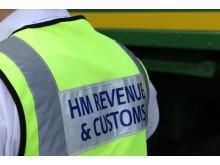
Tax credit claimants urged to check their renewal figures and tell HMRC if any changes need to be made by 31 July, or risk receiving too much or too little credits which will be clawed back through possible penalties
This follows a decision by HMRC to automatically renew most tax credit claims this year in light of the Covid-19 pandemic. This is a departure from the usual process for many claimants, according to the Low Income Tax Reform Group (LITRG).
Automatic renewal means that HMRC state the claimant’s circumstances on a renewal notice and the claimant only needs to contact HMRC if the income shown or circumstances detailed are wrong.
Otherwise, HMRC will finalise entitlement for 2019/20 and put in place a claim for 2020/21 on 31 July (or shortly after).
Tax credits are designed to help working families with targeted financial support so it is important that people do not miss out on money that they are entitled to.
Taxpayers can renew their tax credits online by logging onto GOV.UK to check the progress of their renewal, be reassured that it is being processed, and know when they will hear back from HMRC.
Victoria Todd, head of LITRG, said: ‘HMRC’s glitch, along with the fact that the renewals process looks different for many people this year, means that it is crucial that claimants check their renewals paperwork very carefully.
‘Claimants who receive an auto-renewal notice are told to check the income figure that HMRC say they will use to finalise entitlement for 2019/20 and set the claim for 2020/21.
‘Unfortunately, HMRC now understand that in around one million cases, the notices do not actually include the income figure that HMRC have used in calculating the award that the claimant can check.’
LITRG’s understanding is that this issue affects claimants who have income that HMRC do not know about such as self employed claimants, those who receive taxable social security benefits, and those with other types of income such as rental income from property.
To auto-renew these cases, HMRC have used the last income figure they have on record in their calculations, but these figures do not appear on the actual notice. In any event, this historic figure may not be accurate in some cases.
Todd added: ‘We advise all tax credit claimants to carefully check their renewal notices and the income used.
‘Even if HMRC have data from employers and pension providers, claimants should check to see if they make any deductions from those income figures for things such as pension contributions, certain work expenses and some statutory payments. This may lead to an increased tax credits award.’
HMRC’s director general for customer services, Angela MacDonald said: ‘During these uncertain times, while the UK comes together to combat Covid-19, tax credits payments are a vital source of support for millions of people and their families.
‘If you have been contacted by HMRC to provide your income details, I urge you to contact the department before 31 July. Don’t leave it too late, get in touch and make sure the information we hold is correct.’
In April, HMRC announced Working Tax Credit customers would receive up to £20 extra each week from 6 April 2020 until 5 April 2021, as part of a number of measures to support the country during the Coronavirus pandemic.
To make sure the information HMRC holds is correct and up to date, letters have been sent to some taxpayers to reconfirm their income details.
HMRC said that if any information HMRC holds is incorrect or incomplete, taxpayers may have to pay back any tax credits that have been overpaid. They may also have to pay a penalty.
Taxpayers could use the HMRC App on their smartphone to renew their tax credits, as well as check their tax credits payments schedule and find out how much they have earned for the year.
Tax credit scam
The public should be aware that criminals could take advantage of tax credits renewals to text, email or phone the public, offering fake support. The scams mimic HMRC messages in an effort to look genuine.
If someone texts, emails or calls claiming to be from HMRC, saying that a taxpayer can renew a tax credits award or access financial help, and asks for credit card or bank details, it’s likely to be a scam.
People should check GOV.UK for information on how to recognise genuine HMRC contact.
Taxpayers can get help and information on renewing tax credits on GOV.UK or by calling the tax credits helpline: 0345 300 3900
Check GOV.UK for information on how to recognise genuine HMRC contact and how to avoid and report scams

